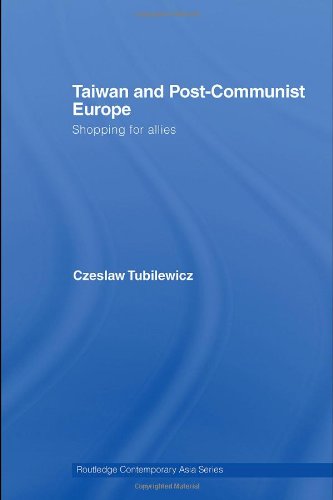

Most ebook files are in PDF format, so you can easily read them using various software such as Foxit Reader or directly on the Google Chrome browser.
Some ebook files are released by publishers in other formats such as .awz, .mobi, .epub, .fb2, etc. You may need to install specific software to read these formats on mobile/PC, such as Calibre.
Please read the tutorial at this link: https://ebookbell.com/faq
We offer FREE conversion to the popular formats you request; however, this may take some time. Therefore, right after payment, please email us, and we will try to provide the service as quickly as possible.
For some exceptional file formats or broken links (if any), please refrain from opening any disputes. Instead, email us first, and we will try to assist within a maximum of 6 hours.
EbookBell Team

0.0
0 reviewsTaiwan and Post-Communist Europe examines Taiwan’s economic diplomacy towards post-communist states in Central and Eastern Europe. The media, and occasionally academia, have often suggested that Taipei resorts to costly aid, trade and investment diplomacy to facilitate its foreign relations, whilst China engages in equally costly counter-economic diplomacy to keep Taiwan isolated. Czeslaw Tubilewicz argues conversely that Beijing’s diplomacy in post-communist Europe has demonstrated China’s reluctance to employ economic instruments against states violating the ‘one-China’ principle when cheaper (diplomatic) alternatives are available. Taipei, for its part, has demonstrated that promises of economic assistance are sufficient to induce target states’ short term compliance, whilst in the medium to long term Taiwanese economic assistance, conditional upon meeting political criteria, has proved inconsequential due to Taipei’s refusal to follow up aid commitments.
This book examines the efficacy and limitations of Taipei’s frugal economic diplomacy in furthering its broader diplomatic objectives, looking at both Taipei’s failure to establish a lasting diplomatic presence in post-communist Europe, but also its success in securing ‘substantive’ relations with a number of major post-communist states, and thus opening transition economies for its exports and investments. The first in-depth study into Taiwan’s economic diplomacy toward post-communist Europe, this book will appeal to readers interested in Taiwan and China studies, diplomacy, Asian studies and international relations.